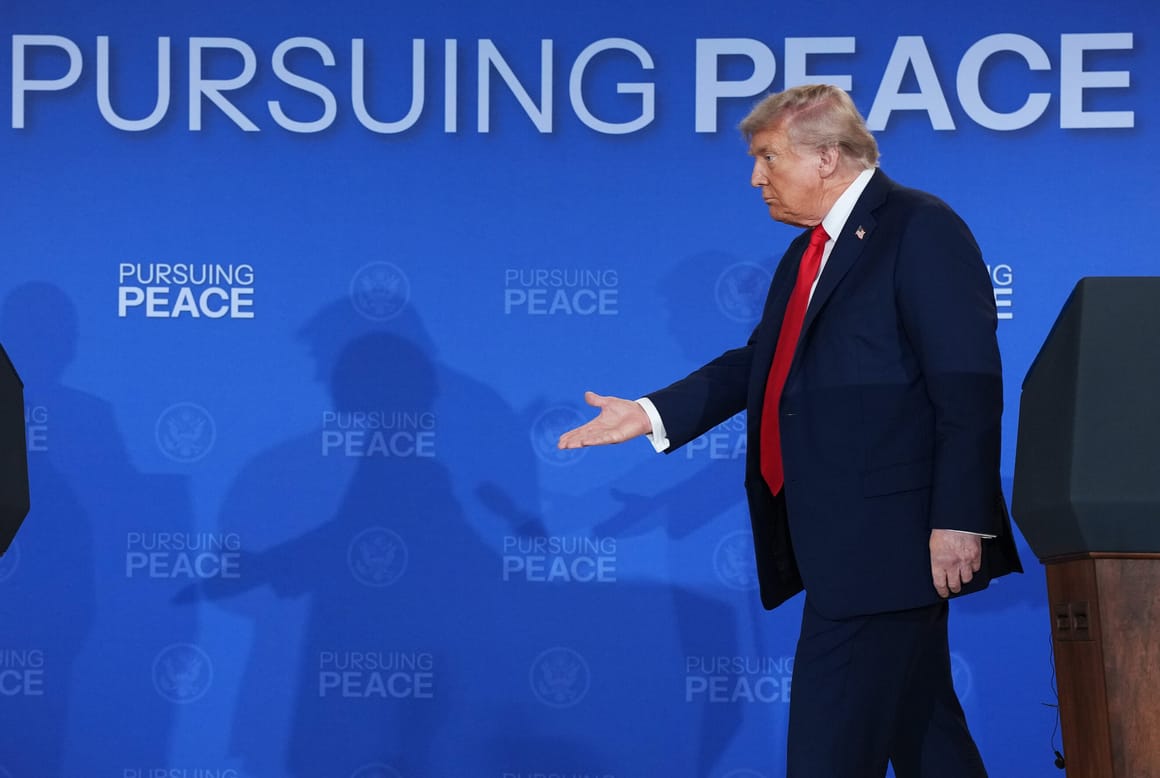Politics
Trump Engages European Allies and Zelenskyy After Putin Talks Fail

U.S. President Donald Trump initiated diplomatic outreach to European allies and Ukrainian President Volodymyr Zelenskyy following unproductive talks with Russian President Vladimir Putin in Alaska. The discussions, held on March 15, 2024, at Joint Base Elmendorf-Richardson, ended without a significant agreement, prompting concerns about the future of the ongoing war in Ukraine.
On Saturday morning, European Commission spokesperson Arianna Podestà confirmed that Trump briefed European leaders on the summit’s outcomes. The call included prominent figures such as Ursula von der Leyen, President of the European Commission, and leaders from several nations, including French President Emmanuel Macron, German Chancellor Friedrich Merz, and British Prime Minister Keir Starmer. Trump’s special envoy Steve Witkoff and U.S. Secretary of State Marco Rubio also participated.
In a subsequent private call, European leaders met without Zelenskyy and U.S. officials to assess the situation. Zelenskyy characterized his conversation with Trump as “long and substantive,” expressing support for a proposed trilateral meeting involving Ukraine, the U.S., and Russia. He emphasized that key issues could be effectively discussed at the leadership level and announced plans to visit Washington on Monday to meet with Trump.
A critical meeting of ambassadors from the European Union took place on Saturday morning to deliberate the bloc’s next steps. According to two EU diplomats, this extraordinary session was convened in a “restricted format” to minimize information leaks.
Despite the lack of breakthroughs during the talks, Trump described them as “extremely productive,” noting agreement on several points. He stated that future discussions would involve the Ukrainian side and European allies, asserting that the resolution ultimately rests with them. Trump’s remarks suggested a commitment to engaging with allies, even as he extended a warm welcome to Putin, who faces war crimes charges from the International Criminal Court.
Putin, while refraining from addressing international media questions, maintained that his military actions in Ukraine are motivated by “fundamental threats to our security.” He hinted at a potential “agreement” with Trump that could facilitate progress towards peace in Ukraine.
European officials had expressed concerns about a private meeting between Trump and Putin that excluded Ukraine. Despite this, leaders felt reassured following a recent virtual summit with Trump, where he assured them he would not endorse territorial exchanges without Ukraine’s consent. The Trump administration had engaged in unprecedented dialogue with international allies prior to the Alaska discussions, routinely briefing NATO and the EU.
As diplomatic efforts continue, the focus remains on how Washington will navigate its relationships with both Kyiv and Moscow in pursuit of a resolution to the ongoing conflict.
-

 Top Stories3 months ago
Top Stories3 months agoTributes Surge for 9-Year-Old Leon Briody After Cancer Battle
-

 Entertainment4 months ago
Entertainment4 months agoAimee Osbourne Joins Family for Emotional Tribute to Ozzy
-

 Politics4 months ago
Politics4 months agoDanny Healy-Rae Considers Complaint After Altercation with Garda
-

 Top Stories4 months ago
Top Stories4 months agoIreland Enjoys Summer Heat as Hurricane Erin Approaches Atlantic
-

 World5 months ago
World5 months agoHawaii Commemorates 80 Years Since Hiroshima Bombing with Ceremony
-

 Top Stories3 months ago
Top Stories3 months agoNewcastle West Woman Patricia Foley Found Safe After Urgent Search
-

 Top Stories5 months ago
Top Stories5 months agoFianna Fáil TDs Urgently Consider Maire Geoghegan-Quinn for Presidency
-

 World5 months ago
World5 months agoCouple Convicted of Murdering Two-Year-Old Grandson in Wales
-

 World5 months ago
World5 months agoGaza Aid Distribution Tragedy: 20 Killed Amid Ongoing Violence
-

 World5 months ago
World5 months agoAristocrat Constance Marten and Partner Convicted of Infant Murder
-

 Top Stories4 months ago
Top Stories4 months agoClimbing Errigal: A Must-Do Summer Adventure in Donegal
-

 Top Stories4 months ago
Top Stories4 months agoHike Donegal’s Errigal Mountain NOW for Unforgettable Summer Views









